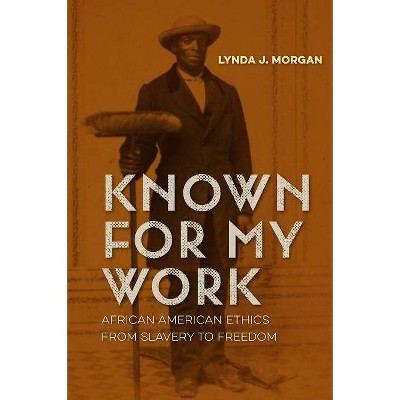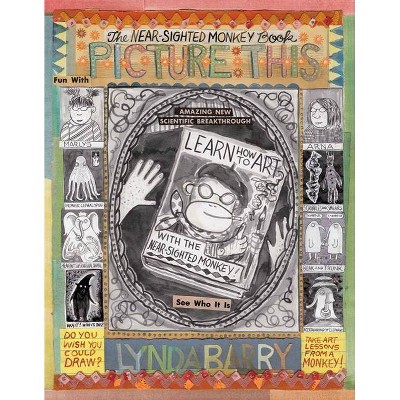Known for My Work - by Lynda J Morgan (Hardcover)

Similar Products
Products of same category from the store
AllProduct info
<p/><br></br><p><b> About the Book </b></p></br></br>-Lynda Morgan builds an intellectual and social history of slave thought about labor and morality, and she traces elements through Reconstruction and the civil rights movement. She concludes her manuscript by connecting this legacy to reparations arguments and apologies for slavery that continue in the present day---Provided by publisher.<p/><br></br><p><b> Book Synopsis </b></p></br></br>"Demonstrates that the 'emancipation generation' bequeathed values, ethical frameworks, and identities to multiple ensuing generations, shaping religious, educational, and cultural institutions as well as labor and political organizations."--Peter Rachleff, editor of <i>Starving Amidst Too Much and Other IWW Writings on the Food Industry</i> <p/> "Shows how far off the mark arguments are that claim that black Americans generally have internalized inferiority and engage in self-defeating behaviors."--William A. Darity Jr., coeditor of <i>Boundaries of Clan and Color: Transnational Comparisons of Inter-Group Disparity</i> <p/> In <i>Known for My Work</i>, Lynda Morgan looks beyond slavery's legacy of racial and economic inequality and counters the idea that slaves were unprepared for freedom. By examining African American social and intellectual thought, Morgan highlights how slaves built an ethos of "honest labor" and collective humanism. As moral economists, slaves and their descendants insisted that economic motives formed the foundation of their exploitation and made sophisticated arguments about the appropriate role of labor in a just and democratic society. <p/> Morgan considers how slaves evaluated the violence, coercions, and deceits employed by slaveholders as means to maintain power, as well as the ways in which fugitive slaves active in the abolition movement stressed to nonslaveholding audiences how they were complicit in a regime fraught with moral decay. She also points to the racial rhetoric of Jim Crow architects and how it was readily identified as elaborating on slave-era racial propaganda in new ways for an old reason: to establish a rigid economic inequality in the Industrial Revolution. <p/> From the late antebellum era through Reconstruction, labor organizing in the 1930s and 1940s, the civil rights movement of the 1960s and 1970s, and the reparations movement of the twenty-first century, Morgan offers an unprecedented view of African America. What emerges from the literature is a clear critique of racism, an embrace of self-defense, and the belief that they deserved reparations for lost labor. Enslaved laborers thought for themselves, imagined themselves, and made themselves. Moreover, their descendants share this moral legacy as a foundation for citizenship and participation in democracy. <p/><p/><br></br><p><b> Review Quotes </b></p></br></br><br>"Offers a refreshing interpretation of the intellectual contributions of enslaved and formerly enslaved blacks and the legacy of their moral economy in the United States."--<i><b>Journal of Southern History</i></b> "An informative and provocative book."--<i><b>Griot</i></b> "[Morgan's] primary subject is the folk thought regarding ethics that was grounded in the slave's experience, more so than on policies and political outcomes. Slave histories rarely give the voice of slaves such priority."--<i><b>Choice</i></b><br><p/><br></br><p><b> About the Author </b></p></br></br><b>Lynda J. Morgan</b>, professor of history at Mount Holyoke College, is the author of <i>Emancipation in Virginia s Tobacco Belt, 1850 1870</i>.<br> "
Price History
Price Archive shows prices from various stores, lets you see history and find the cheapest. There is no actual sale on the website. For all support, inquiry and suggestion messagescommunication@pricearchive.us



















